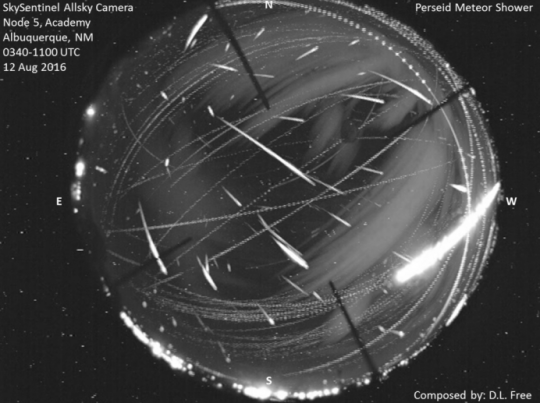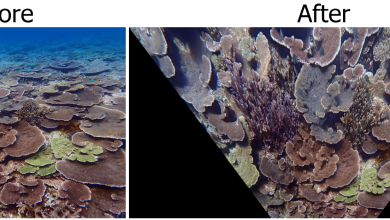Specialized Cameras Capture Perseid Meteor Shower From FIT, Around the World
Florida Tech Student Researchers Collect,
Hone Meteor Data for Scientists
MELBOURNE, FLA. — Time-lapse images captured during the peak of this summer’s Perseid meteor shower have been released by the SkySentinel project, in which students at Florida Institute of Technology monitor the night sky from a network of up-looking, wide-angle cameras around the globe.
This year’s Perseid meteor shower, extending from July to late August, was particularly active Aug. 11-12, when it peaked with hundreds of events. That is when the images were captured by SkySentinel.
The meteors are leftover dust and debris left behind by Comet Swift-Tuttle, which last passed near Earth’s orbit in 1992 and won’t return until 2126. The remnants of this event are seen every year when Earth passes through the comet’s closest trajectory to our planet.
Besides tracking phenomena such as the recent Perseid for the SkySentinel Project, Florida Tech students are contributing upgrades to the camera system’s software, enhancing trajectory calculations and improving the system’s astronomic accuracy.
The images feature recent Perseid activity as witnessed from different camera points around the country. There are currently 58 SkySentinel Allsky cameras in the United States and Canada, with additional cameras in other countries including India, Taiwan, Mexico and Brazil. The cameras collect data 24 hours a day, seven days a week and are capable of playing back missed events over previous weeks or months. The entire network of Allsky data is uploaded to the SkySentinel server at Florida Tech’s Geospace Physics Lab, where it is permanently archived.
The SkySentinel Allsky cameras were developed by Sandia National Laboratories to monitor, track and analyze meteors in the atmosphere and other Transient Luminous Events (TLEs). These include rare, high-atmospheric lightning called sprites and jets. The information collected by the students is open and available to scientists in need of direct observation data of the various phenomena captured by the cameras.
Sandia established the current SkySentinel Allsky Camera Network now operated jointly by Florida Tech and SkySentinel, LLC Science Education and Research Program, which is managed by SkySentinel CEO Dwayne L. Free. Csaba Palotai, assistant professor of physical and space sciences, coordinates the Florida Tech efforts.
###





